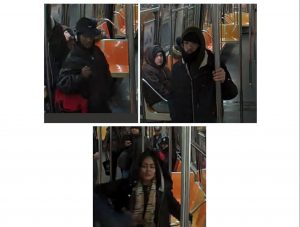A store clerk said on Wednesday at the trial of former Minneapolis police officer Derek Chauvin that he regretted accepting the fake $20 bill from George Floyd that led to his arrest and eventual death.
“If I would have just not taken the bill, this could have been avoided,” Christopher Martin said on the third day of Chauvin’s high-profile trial.
Also Read: ‘He was suffering. He was in pain’: Witness recounts George Floyd’s murder at trial
Chauvin, 45, is charged with murder and manslaughter for his role in Floyd’s May 25, 2020 death, which was captured on video and sparked anti-racism protests around the world.
Chauvin, who is white, was seen on the video kneeling on the neck of Floyd, a 46-year-old Black man, for more than nine minutes.
Martin, 19, worked as a cashier at Cup Foods, the store where Floyd used a counterfeit $20 bill to buy a pack of cigarettes.
Martin said he knew right away that the banknote was fake but took it anyway.
“I thought George didn’t really know that it was a fake bill,” Martin said. “I thought I’d be doing him a favor.”
“I took it anyways and I was planning to just put it on my tab,” he said, meaning that the amount would be taken out of his paycheck. “I offered to pay for it.”
Also Read: Firefighter says police officers prevented her from helping George Floyd
Martin said he told the store manager about the fake bill, however, and he was told to go outside and tell Floyd to return to the store.
Martin and co-workers went outside to a car where Floyd was sitting with two other people but they refused to return to the store and the manager called the police.
After police arrived, Floyd was handcuffed and Chauvin held him down with his knee on his neck until he passed out and was taken away by an ambulance.
Eric Nelson, Chauvin’s defense attorney, claimed in opening arguments that Floyd’s death was due to drugs and underlying medical conditions and not asphyxiation.
Martin said Floyd appeared to be “high” while he was in the store but was “very friendly, approachable, talkative.”
“He seemed to be having an average Memorial Day, just living his life,” Martin said. “He did seem high.”
Martin said he left the store when he heard “yelling and screaming” outside.
“I saw (Chauvin) with his knee on George’s neck on the ground,” he said. “George was motionless, limp.”
Also Read: George Floyd’s family take a knee in Minneapolis
Asked by prosecutor Matthew Frank what he felt at the time, Martin became visibly upset and said “disbelief and guilt.”
The prosecution and defense also concluded their questioning on Wednesday of another witness, Genevieve Hansen, 27, an off-duty firefighter and emergency medical technician who was rebuffed by police when she tried to render assistance to Floyd.
Nelson asked Hansen if she had shown her firefighter identification to police on the scene and she said she did not have it on her at the time.
The morning session of the trial was briefly interrupted when a member of the nine-woman, five-man jury appeared to fall ill.
Prosecutors are seeking to demonstrate to the jury that Chauvin had no justification for using a dangerous neck restraint on a compliant Floyd.
Chauvin, a 19-year veteran of the police force, faces up to 40 years in prison if convicted of the most serious charge — second-degree murder.
The trial is expected to last about a month.
Three other former police officers involved in the arrest — Tou Thao, Thomas Lane, and J. Alexander Kueng — are to be tried separately later this year.






